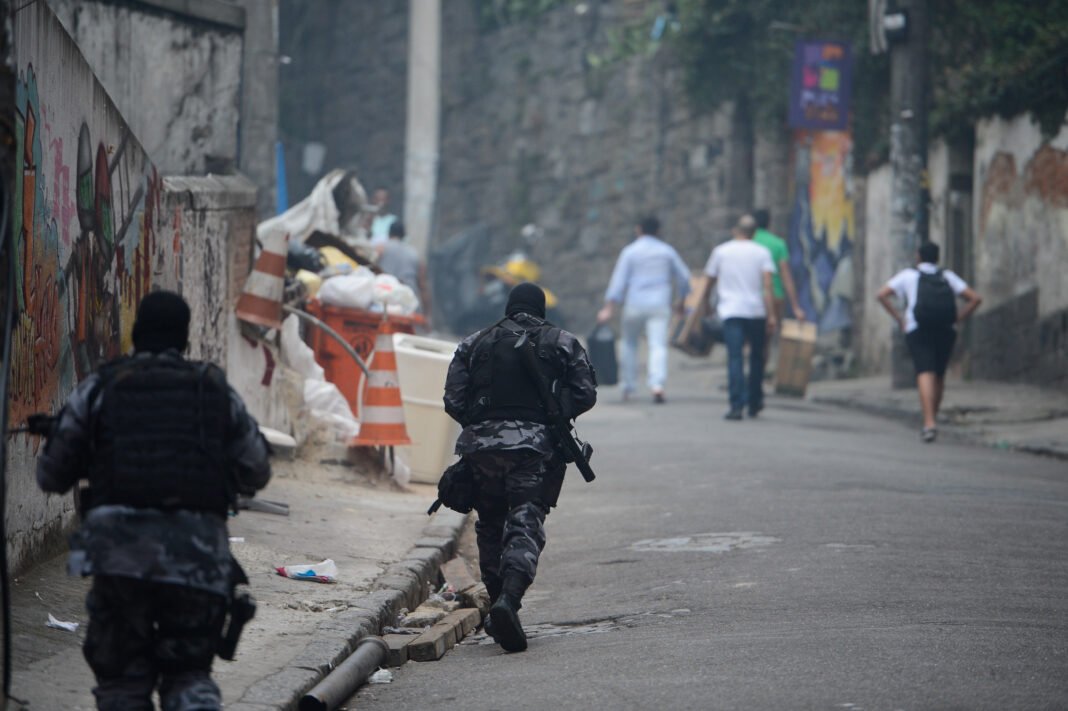On Thursday (03/04), the Supreme Federal Court (STF) approved a comprehensive action plan aimed at reducing police lethality in law enforcement operations across Rio de Janeiro’s favelas. This decision marks the conclusion of the trial of ADPF 635, widely known as the “ADPF das Favelas.” Among the measures announced by STF President Luís Roberto Barroso are a mandate for the Federal Police to expand its investigative role in cases with interstate and international dimensions, the creation of a state plan for the territorial reoccupation of areas under the control of criminal organizations, and revised guidelines regarding the use of helicopters and cameras during police operations. The Court also maintained its previous stance on accountability measures, while softening restrictions deemed operationally limiting by state authorities.
This Content Is Only For Subscribers
To unlock this content, subscribe to INTERLIRA Reports.
ADPF das Favelas
ADPF 635 was originally filed in 2019 by the Brazilian Socialist Party (PSB), with support from several civil society organizations, to address and reduce the high number of civilian deaths resulting from police actions in Rio’s favelas. Minister Edson Fachin, the case’s rapporteur since 2020, has issued a series of precautionary measures requiring the state to present and implement strategies for reducing police lethality. Among the key advances ordered by the Court were the mandatory use of body cameras on police officers and real-time geolocation systems, including audio and video recording in all vehicles used by public security agencies. These provisions are designed to improve transparency, prevent abuse, and strengthen the monitoring of police operations in vulnerable communities.
Expansion of Federal Police Authority
The Court’s plan includes a directive for the Federal Police to take a more active role in investigating crimes that have broader repercussions and that demand a coordinated and consistent national response. This includes serious human rights violations and crimes involving complex criminal networks, their leadership structures, and financial transactions. Although this expanded federal role does not exclude collaboration with state security forces, it positions the Federal Police as a central actor in combating organized crime in Rio, particularly where state institutions have shown operational or political limitations.
Mandatory Autopsies and Prosecutorial Oversight
The STF also imposed obligations to strengthen transparency in the aftermath of police interventions. Autopsies are now mandatory in all cases involving deaths resulting from police action, and forensic reports must be completed within ten days. In addition, the Public Prosecutor’s Office must be immediately notified when deaths of civilians or security agents occur during these operations. This provision allows prosecutors to evaluate the need for on-site presence during the early stages of the investigation, reinforcing independent oversight of police activities and enabling quicker legal responses in cases of misconduct.
Mental Health Support for Police Officers
As part of the broader framework to reduce violence and improve operational integrity, the STF gave the state government of Rio de Janeiro a deadline of 180 days to implement a mental health program for security professionals. The plan must provide psychological support and include an evaluation process for identifying excessive lethality in the conduct of police personnel. According to the ruling, mental health professionals will be tasked with assessing whether officers involved in repeated violent incidents should be temporarily removed from street duties, as a preventive measure to avoid escalation and to preserve the well-being of both agents and civilians.
Territorial Reoccupation Plan
The STF also ordered the state government to draw up and submit a plan to reclaim and reestablish public authority in territories currently controlled by criminal factions, including drug trafficking groups and militias. This territorial reoccupation initiative is intended to restore state governance in areas that have long operated outside institutional frameworks and to weaken the hold of illegal groups that exploit the absence of public services and law enforcement. The plan must include coordinated strategies across multiple government sectors, combining public security with social and infrastructure policies.
Use of Helicopters and Equipment Regulations
In response to operational concerns voiced by Rio authorities, the Court decided to ease a prior restriction on the use of helicopters during police actions. While the original injunction had sought to prevent indiscriminate aerial shootings and protect residents in densely populated areas, the revised guidelines allow for greater flexibility, provided that their use is justified and controlled. At the same time, the Court upheld the requirement for police to wear body cameras and for all public security vehicles to be equipped with real-time monitoring systems.
Statements from Officials
Governor Cláudio Castro publicly welcomed the STF’s decision, especially the relaxation of rules on helicopter deployment, which he described as crucial for complex operations in high-risk areas. Meanwhile, Minister Edson Fachin reaffirmed the importance of the Court’s continued involvement in addressing police violence. He emphasized that the rulings stemming from the ADPF das Favelas have already contributed to measurable reductions in police lethality and rejected attempts to blame the judiciary for broader public security failures. Fachin called for data-based debate and urged political actors to avoid narratives that distort the Court’s efforts to ensure lawful and responsible policing in Brazil’s most vulnerable communities.
Analysis:
The Supreme Federal Court’s ruling on ADPF das Favelas represents a significant institutional milestone in the effort to reduce police lethality and reestablish democratic control over territories dominated by organized crime in Rio de Janeiro. The approved plan responds to long-standing demands from civil society and academic sectors: greater transparency, federal involvement in complex investigations, and a shift from exclusively repressive tactics to more comprehensive territorial governance strategies.
Despite this legal and normative progress, the greatest challenge lies in implementation. Measures such as the mandatory use of body cameras, real-time monitoring systems, and timely forensic investigations can enhance accountability—but only if supported by proper infrastructure, independent oversight, and sustained political commitment.
The Federal Police’s expanded role is a positive development, particularly for confronting militias and transnational criminal networks that often operate beyond the reach of local law enforcement.




